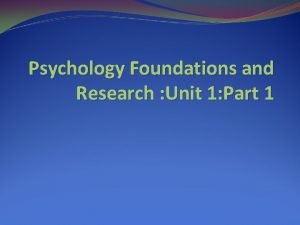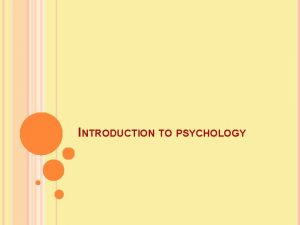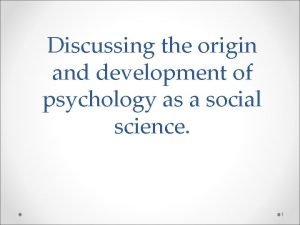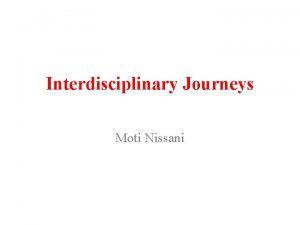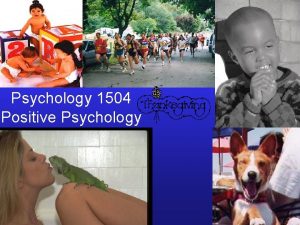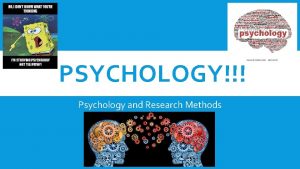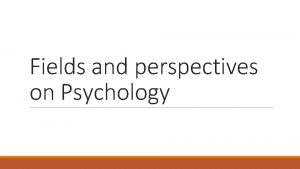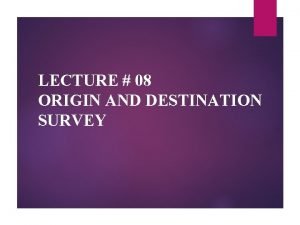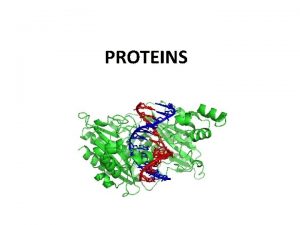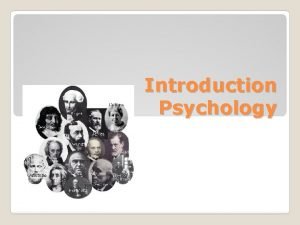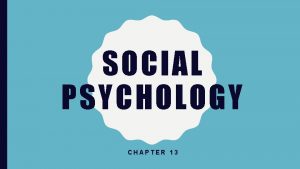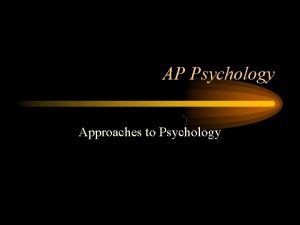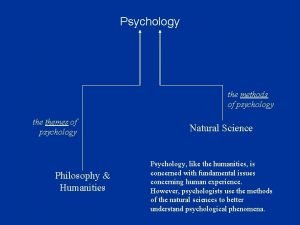Discussing the origin and development of psychology as


























- Slides: 26

Discussing the origin and development of psychology as a social science. 1

Prescientific Psychology Plato http: //www. law. umkc. edu Socrates (469 -399 B. C. ) and Plato (428 -348 B. C. ) Socrates and his student Plato believed the mind was separate from the body, the mind continued to exist after death, and ideas were innate. 2

Prescientific Psychology Aristotle (384 -322 B. C. ) http: //faculty. washington. edu Aristotle suggested that the soul is not separable from the body and that knowledge (ideas) grow from experience. 3

Prescientific Psychology Rene Descartes (1596 -1650) http: //ocw. mit. edu http: //www. spacerad. com Descartes, like Plato, believed in soul (mind)-body separation, but wondered how the immaterial mind and physical body communicated. 4

Prescientific Psychology John Locke (1632 -1704) biografieonline. it/img/bio/John_Locke. jpg Locke held that the mind was a tabula rasa, or blank sheet, at birth, and experiences wrote on it. 5

The move away from philosophy… • When psychology was first established as a science separate from biology and philosophy, the debate over how to describe and explain the human mind and behavior began. 6

The move away from philosophy… • Structuralism emerged as the first school of thought and some of the ideas associated with the structuralist school were advocated by the founder of the first psychology lab, Wilhelm Wundt. 7

The move away from philosophy… • Structuralism is thought of as the earliest form of biopsychology, where scientist assumed that the structure of the brain can answer questions regarding human behavior. 8

Psychological Science is Born Structuralism Titchner (1867 -1927) Wundt (1832 -1920) Wundt and Titchener studied the elements (atoms) of the mind by conducting experiments at Leipzig, Germany, in 1879. Their experiment in 1879 was known as the first psychological experiment. 9

Defining psychology • Psychology is the scientific study of behavior and mental processes. • Behavior is any action that people can observe or measure, such as walking, talking, sleeping, and eating. • Cognitive activities are mental processes. They include dreams, perceptions, thoughts, and memories. • Emotions can affect both behavior and mental processes. • To study emotions, psychologists might use psychological constructs to help them study what we cannot see, touch, or measure directly.

Psychology’s Big Debate Nature versus Nurture • Through scientist such as Charles Darwin, the nature versus nurture debate came to life in the 1800 s. • This debate argued over the extent to which biological factors or environment factors influence behavior 11

Nature versus Nurture This claim ignited a movement known today as evolutionary psychology. • Darwin claimed that nature selects those that best enable the organism to survive and reproduce in a particular environment. Darwin (1809 -1882) • 12

Psychology’s Three Main Levels of Analysis 13

Psychology’s Current Perspectives Perspective Focus Sample Questions Neuroscience How the body and brain enables emotions? How are messages transmitted in the body? How is blood chemistry linked with moods and motives? Evolutionary How the natural selection of traits the promotes the perpetuation of one’s genes? How does evolution influence behavior tendencies? Behavior genetics How much our genes and our environments influence our individual differences? To what extent are psychological traits such as intelligence, personality, sexual orientation, and vulnerability to depression attributable to our genes? To our environment? 14

Psychology’s Current Perspectives Perspective Focus Sample Questions Cognitive How we encode, process, store and retrieve information? How do we use information in remembering? Reasoning? Problem solving? Social-cultural How behavior and thinking vary across situations and cultures? How are we — as Africans, Asians, Australians or North Americans – alike as members of human family? As products of different environmental contexts, how do we differ? 15

Psychology’s Subfields: Research Psychologist Biological Developmental Cognitive Personality Social What she does Explore the links between brain and mind. Study changing abilities from womb to tomb. Study how we perceive, think, and solve problems. Investigate our persistent traits. Explore how we view and affect one another. 16

Think. Pair. Share Summarize What career fields do you think benefit from an understanding of human behavior? Why? Answer: Share your response with your neighbor and explain why…

Benefits of Psychology • • Law Medicine Sports Business Education Politics Etc. 18

Major Fields in Psychology Clinical Psychology • Most psychologists are clinical psychologists. • Clinical psychology includes child mental health, adult mental health, learning disabilities, geriatrics, and general health. • Clinical psychologists treat people with psychological problems such as anxiety or depression or severe psychological disorders. • Psychologists are not psychiatrists. A psychiatrist is a medical doctor who specializes in psychological programs and who can prescribe medication for clients. Psychologists may not prescribe medication. Counseling Psychology • Counseling psychologists typically treat people who have adjustment problems. • They often work in businesses or higher educational institutions.

School Psychology • School psychologists identify and help students who have problems that interfere with learning. • School psychologists use interviews, tests, and observation to help students. Educational Psychology • Educational psychologists focus on course planning and instructional methods for an entire school system rather than for an individual student. • They focus on how learning is affected by psychological factors, cultural factors, economic factors, and instructional methods. • Some educational psychologists help prepare standardized tests. • They also study various tests to determine college success.

Developmental Psychology • Developmental psychologists study changes that occur throughout a person’s lifespan. • These changes can be physical, emotional, cognitive, or social. • Some development psychologists are especially interested in the challenges of adolescence. Personality Psychology • Personality psychologists identify and study human characteristics, or traits. • They are interested in the origins of psychological problems and disorders. • Also they are concerned with issues such as anxiety, aggression, and gender roles.

Social Psychology • Social psychologists are concerned with people’s social behavior. • They focus on external rather than internal influences. Experimental Psychology • Psychologists in all specialties may conduct experimental research, but experimental psychologists conduct research into basic processes such as functions of the nervous system, sensation and perception, learning and memory, and thinking and motivation. • Experimental psychologists study the biological and psychological reasons for cognitive behavior. Biological psychologists study the relationship between biological changes and psychological events. • Experimental psychologists are more likely than other psychologists to do basic research. Basic research is research that has no immediate application and is done for its own sake.

Click on the image to play the Interactive.

Clinical Psychology vs. Psychiatry A clinical psychologist (Ph. D. ) studies, assesses, and treats troubled people with psychotherapy. Psychiatrists on the other hand are medical professionals (M. D. ) who use treatments like drugs and psychotherapy to treat psychologically diseased patients. 24

Close-up Your Study of Psychology Survey, Question, Read, Review and Reflect (SQ 3 R) § § § Survey: What you are about to read, including chapter outlines and section heads. Question: Ask questions. Make notes. Read: Make sure you read outlines, sections and chapters in entirety. Review: Margin definitions. Study learning outcomes. Reflect: On what you learn. Test yourself with quizzes. 25

Close-up Additional Study Hints § § Distribute your time. Listen actively in class. Overlearn. Be a smart test-taker. 26
 Disadvantages of instructional objectives
Disadvantages of instructional objectives Discusses advantage and disadvantage
Discusses advantage and disadvantage Two technicians are discussing oil pumps
Two technicians are discussing oil pumps When discussing comparative and absolute advantage
When discussing comparative and absolute advantage Psychology definition
Psychology definition Scope of psychology
Scope of psychology Structuralist school of thought
Structuralist school of thought Two technicians are discussing back pressure
Two technicians are discussing back pressure Two technicians are discussing electromagnetic induction
Two technicians are discussing electromagnetic induction Two technicians are discussing electromagnetic induction
Two technicians are discussing electromagnetic induction Two technicians are discussing schematic symbols
Two technicians are discussing schematic symbols All switches illustrated in schematics are
All switches illustrated in schematics are Two technicians are discussing tire rotation
Two technicians are discussing tire rotation Politicians discussing global warming
Politicians discussing global warming Proper term for channel locks
Proper term for channel locks Two technicians are discussing a stepped ect circuit
Two technicians are discussing a stepped ect circuit History of community development in nigeria
History of community development in nigeria The origins of language curriculum development
The origins of language curriculum development Hình ảnh bộ gõ cơ thể búng tay
Hình ảnh bộ gõ cơ thể búng tay Bổ thể
Bổ thể Tỉ lệ cơ thể trẻ em
Tỉ lệ cơ thể trẻ em Voi kéo gỗ như thế nào
Voi kéo gỗ như thế nào Glasgow thang điểm
Glasgow thang điểm Hát lên người ơi
Hát lên người ơi Môn thể thao bắt đầu bằng từ đua
Môn thể thao bắt đầu bằng từ đua Thế nào là hệ số cao nhất
Thế nào là hệ số cao nhất




